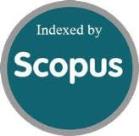Compliance with Ethical Standards
To maintain research objectivity and transparency while adhering to ethical principles, authors should disclose funding sources, and potential conflicts of interest, obtain informed consent from human participants, and provide a statement regarding animal welfare if animals were involved in the study.
When submitting a manuscript, authors should include the following statements (if applicable) in a separate section before the References:
1. Disclosure of potential conflicts of interest: Authors should declare any potential conflicts of interest, including but not limited to financial interests (e.g., grants, consulting fees, stock ownership), personal relationships, or intellectual property rights that could have influenced the research or its interpretation. All potential conflicts of interest, even if perceived as minor, should be disclosed.
2. Funding Sources: Authors must indicate all sources of financial support for each author and the research team, including grants, funding agencies, institutions, or organizations. * Please specify whether funding supported individual authors or the entire research team. * Briefly mention whether the funding sources had any role in study design, data collection, analysis, interpretation, or manuscript preparation.
3. Human Research Ethics: For studies involving human participants, include a statement affirming approval from the appropriate institutional and/or national research ethics committee. Confirm adherence to ethical standards outlined in WAME, the 1964 Declaration of Helsinki or its later amendments. Include the following statements in the text before the References section:
Ethical approval: All procedures involving human participants adhered to ethical standards set by the institutional and/or national research committee, and followed the principles of WAME, the 1964 Declaration of Helsinki or its later amendments.
For retrospective studies, add the below statement:
Ethical approval: informed consent is not required for this type of study.
4. Animal Research Ethics: Authors must prioritize the welfare of animals used in research. They should specify whether they followed international, national, and/or institutional guidelines for animal care and use, (e.g., ARRIVE guidelines, NIH Guidelines for the Care and Use of Laboratory Animals). Additionally, authors should confirm approval from a research ethics committee at the relevant institution or practice. For studies involving animals, include the following statement before the References section:
Ethical approval: This study adheres to all relevant international, national, and/or institutional guidelines for animal care and use.
5. Informed consent: Authors should state that informed consent was obtained from all participants involved in the study. This ensures that participants were adequately informed about the research procedures, potential risks, benefits, and their rights as research subjects before agreeing to participate.
Ethical approval: This study adheres to all relevant international, national, and/or institutional guidelines for animal care and use.
6. Plagiarism and Authorship: Ensure all authors have made substantial contributions to the research. Acknowledge any contributions from individuals who do not meet the criteria for authorship. Avoid plagiarism and ensure all sources are properly cited.



